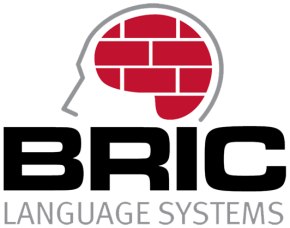 Call it serendipity. Sometimes a new business emerges by accident. When Ryan McMunn moved to Shanghai in 2004 to do quality control for a manufacturing company, one of his goals was to learn to speak Chinese. He never dreamed where that goal would take him.
Call it serendipity. Sometimes a new business emerges by accident. When Ryan McMunn moved to Shanghai in 2004 to do quality control for a manufacturing company, one of his goals was to learn to speak Chinese. He never dreamed where that goal would take him.
Now the founder and CEO of BRIC Language Systems, which offers online language courses and cultural training with live teachers, McMunn says it was clear early on that good language skills mattered.
The importance of being able to conduct business in Chinese was driven home one day when he was doing an audit of a factory that his company was considering working with.
Here’s a little background. A full audit of the documentation would help the Americans ensure employees were being paid right and weren’t working seven days a week. The factory was part of a partly government owned group of factories. But each factory manager acted as his own boss.
Because the amount of business McMunn’s company could offer the Chinese would be large, his company had clout. It would be able to go in and ask that the Chinese pay their employees the right way and not “cook their books,” a practice that is apparently more common over there than here. Chinese companies usually have two sets of books, McMunn told me. And indeed, the Chinese brought out two sets of books. But all of the sudden, a plant manager yelled at one of the employees and chased him out of the room.
Only later did McMunn learn from a Chinese coworker who was serving as his translator that the employee had told the plant manager that he had made a mistake. Although they were supposed to be sharing the real records, they were showing McMunn the records used to cheat auditors and fake records used to cheat the Chinese parent company out of money. The real books were still on a desk in an office. “I was completely flabbergasted by this,” McMunn recalls.
That was the moment that McMunn realized that he absolutely had to learn Mandarin in order to do his job well. Otherwise he would have to rely on a Chinese employee, and things could get lost in translation.
For three years, he tried many language courses, including Berlitz and Rosetta Stone. But nothing worked until he noticed that a friend who had been in China only a year spoke better Mandarin than he could. His friend recommended a local language school. He signed up for courses. And six to eight months later, he could go negotiate and haggle with people in markets. Another year to 14 months after that, he was able to go into factories and make multimillion dollar deals with his Chinese. He stayed in China another three years for a total of eight years.
When he was on the verge of moving back to the U.S., the head of the language school where he had successfully learned Mandarin told him she was trying to run online lessons with live teachers based in China. And was he interested in doing this with her?
He did some research and thought about it. He found a better online learning technology that puts the teacher on the right side of the screen and content on the left side. And he decided he wanted to market to young professionals who are willing to adapt to online technology and systems. Each learning language system is developed for just that language, he notes.
For teaching Chinese, that means his courses focus on getting the students to speak fluently first. This approach “gets them communicating and having conversations much faster than if they had to try to memorize the intricate characters at the same time,” says McMunn. “It also helps them learn to read and write faster because they are already familiar with the language when they begin to learn them.”
In contrast, McMunn says, other language schools teach Chinese the way they teach European languages—by forcing students to learn to read and write at the same time they’re learning to speak and understand. That approach, says McMunn, slows students’ progress down, especially when it comes to learning Chinese characters, which takes far more time than memorizing the 26 letters of an alphabet and learning the language of a European country. “This not only slows them down,” he says, “it is overwhelming and students become discouraged and leave the program.”
Another difference is that many schools force “immersion” from the start, not allowing students to speak their native language when they have a question or need an explanation. It’s also another recipe for frustration, McMunn says.
 BRIC Language Systems is trying to become more than just a language school, says McMunn. It also offers cultural training, like a guidebook.
BRIC Language Systems is trying to become more than just a language school, says McMunn. It also offers cultural training, like a guidebook.
Although BRIC was founded three years ago, it only just launched its Mandarin training program in February, Spanish in May, and Portuguese in September.
What took McMunn so long?
Probably the biggest challenge was getting the content up and running. It was supposed to be a much quicker process. He figured he could contact different publishers and ask to use their content on his website. But without a website up and running and with no brand recognition, nobody had heard of BRIC. “Nobody wanted us to put their content up,” says McMunn. “We wound up writing our own content.” Now he’s happy they did. But it slowed the start up process, because he had to find the people to write the content.
Along the way, McMunn encountered many naysayers. “What makes you think you can do this?” they asked, noting that he hadn’t specialized in education in the past. While it’s important to hear out naysayers, especially if there’s something you might need to change, he says, “If you believe in what you’re doing, it makes it a lot easier to push naysayers aside.”
Does McMunn have any advice for entrepreneurs just starting out?
“Stick to your beliefs,” he says. “Just know that what you’re doing is probably going to change a thousand different times before it comes to fruition. Start with one idea and go through all kinds of iterations of it. Keep plugging away.”
